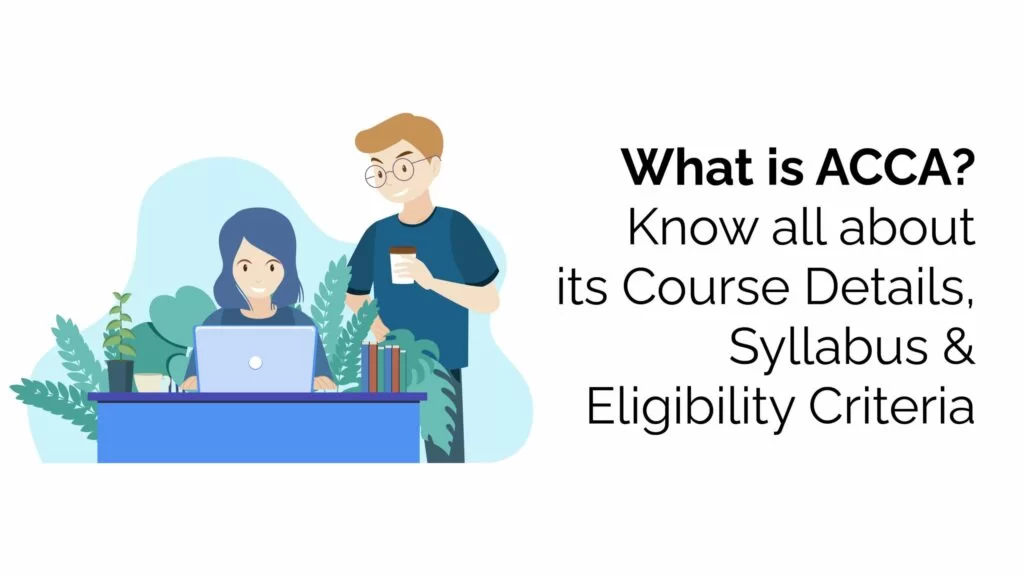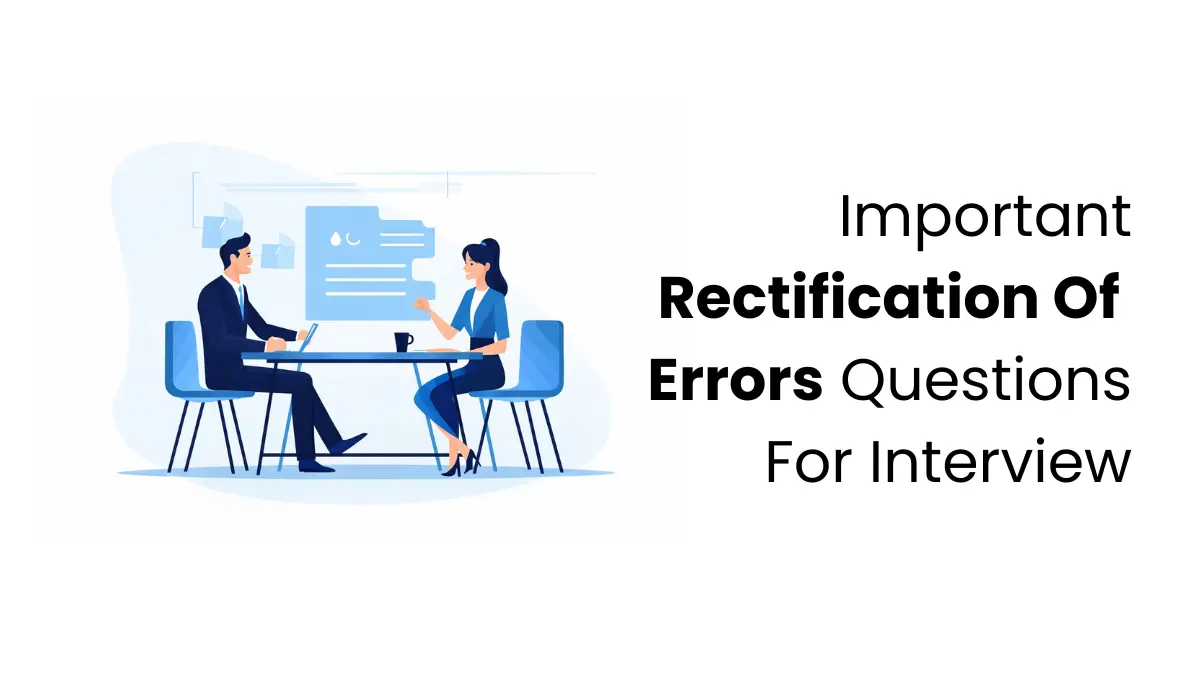ACCA, or the Association of Chartered Certified Accountants, is an internationally recognised course widespread in more than 180 countries. ACCA has earned a prestigious reputation both inside the country as well as abroad. Due to its vast benefits, ACCA has become the world’s most prominent accounting certification course. Students look up to this course to build a successful career.
In India, ACCA and CA have equal relevance, and they get hired in the same post as CAs by biggies like Deloitte, Grant Thornton, PwC, BDO and KPMG.
What is ACCA Course? Complete Details
ACCA course is highly beneficial for commerce graduates, postgraduates, CA aspirants and CA qualified students. Other students who do not come under the above mentioned category can take up a foundation in an accountancy course to catch up with others. There is a total of 13 papers for ACCA exams. Students with just their higher secondary education qualification will have to pass all 13 exams. But there are unique preferences for other students. Commerce graduates need to pass only nine papers. They don’t have to give exams on Business and Technology (BT), Financial Accounting (FA), Management Accounting (MA) and Corporate and Business Law (LW).
Postgraduate commerce students will also receive the same exemptions. Inter CAs must clear only eight papers; they get exemptions in Business and Technology (BT), Management Accounting (MA), Financial Accounting (FA), Taxation (TX) and Audit and Assurance (AA) subjects. ACCA course is most beneficial for CA-qualified students as they have to give only four papers. They get relief on topics from Business and Technology (BT) to Financial Management (FM), i.e. they don’t have to write nine exams and can directly jump to the professional level. CA students will also benefit if they score more than 40 marks on all four papers.
Eligibility Criteria of ACCA
To enrol in an ACCA course, students should complete their higher secondary education with an aggregate of 65% in Accountancy or Mathematics and English and an average of 50% in other subjects. And if you are a student who has just completed your 10th exam and is willing to appear for the ACCA exam, you can do so by registering for a foundation in Accountancy(FIA) course. FIA acts as a bridging course and will enable you to attend an ACCA course.
ACCA Syllabus
ACCA course syllabus is similar to chartered accountancy, which covers financial reporting, Accounting, Taxation, Auditing, Financial Management and Business Finance. Students must clear a total of 13 exams to become a member of ACCA. The 13 exams are divided into three levels- Applied Knowledge, Applied Skills and Professional Level; students can appear for the Applied Knowledge level at any time of the year. They are on-demand exams, whereas Applied Skill and Professional Level exams have fixed times to appear for the exams. Exam windows will open in March, June, September and December. Earlier professional level exams were paper-based, but now all the three-level exams have become computer-based.
Topics covered under the Applied Knowledge level are Accountant in Business (AB), Management Accounting (MA) and Financial Accounting (FA). Applied Skill Level topics are Corporate and Business Law (LW), Performance Management (PM), Financial Reporting (FR), Taxation (TX), Audit and Assurance (AA) and Financial Management (FM). The professional level divides itself into two- Essential and Optional. In essential ones, there are two topics- Strategic Business Reporting (SBR) and Strategic Business Leader (SBL). You have to clear both the subjects. In Optional ones, there are four subjects-Advanced Financial Management (AFM), Advanced Taxation (ATX), Advanced Performance Management(APM) and Advanced Audit and Assurance (AAA). Here you will have the option to clear two exams out of the four.
Professional and Ethics Skills Module
Just having theoretical knowledge will not help you become an ACCA member. You need to have the professional and ethical skills to fight real-time challenges. You will gain these skills during this module. After clearing all the papers, you must also have 36 months of work experience to become an affiliated ACCA member. During that time, you must also procure nine performance objectives. Your work experience certificate should have the signature of your supervisor.
ACCA’s scope in India
ACCA has set a new trend in the country’s accounting industry. MNCs and other reputed accounting firms like Deloitte, PwC, KPMG, Grant Thorton, EY and BDO are hiring ACCA professionals who have cleared all the exams and have gained adequate professional skills. Their job roles include Risk Advisory, Accounting Advisory, Statutory Audit, Forensic Auditing, Internal Audit, Valuations, Mergers and Acquisitions, etc.
Scope of ACCA abroad
ACCA has managed to make its positions in more than 18 countries worldwide. Indian students doing ACCA courses have better opportunities in Singapore, Dubai, UK and Australia. Most governments provide signing authority to ACCA professionals.
Difference between CA and ACCA
Though CA and ACCA exams are similar in most ways, there are still some differences between them. CA has Indian recognition, while ACCA has both Indian and international recognition. When CA has signing authority in India, ACCA does not have one, and when ACCA has signing authority abroad, CA does not have one. CA adopts a group system as its exam pattern, while ACCA follows the rule of one paper at a time. The duration of the CA course is five years, while that of ACCA is two and half years. You can attend the exams of CA every six months, while in ACCA, it is every three months.
If you have a strong desire to become an ACCA member, enrolling in an ACCA course is the best solution. Finprov Learning, India’s leading accounting training institute, has recently launched an ACCA course. Their faculties are ACCA qualified professionals who will provide in-depth knowledge about ACCA exams and professional skills. Join Finprov to become a prestigious ACCA member.
If you still have doubts regarding ACCA, download our e-book and get rid of all your doubts. Our e-book is crafted by top professionals who have years of experience. Stay updated and stay ahead.










